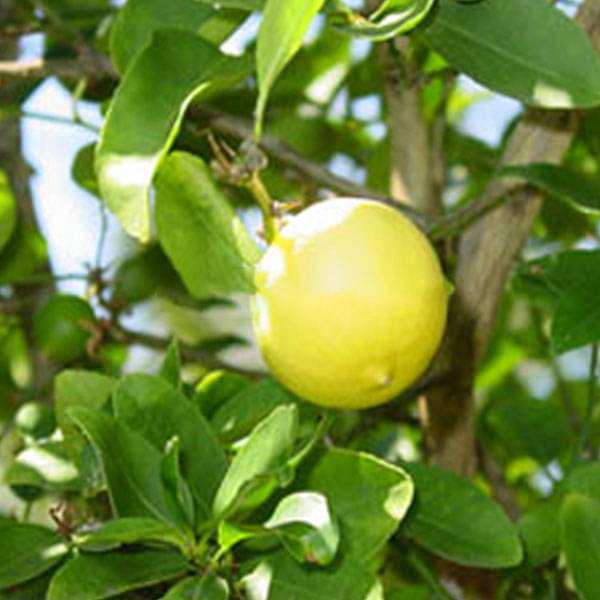
Kagji Nimboo, Lemon - 0.5 kg Seeds
(MRP Inclusive of all taxes)
- Shipping ₹79 for entire order
- Dispatch in 2-3 weeks
- Country of origin: India

(MRP Inclusive of all taxes)
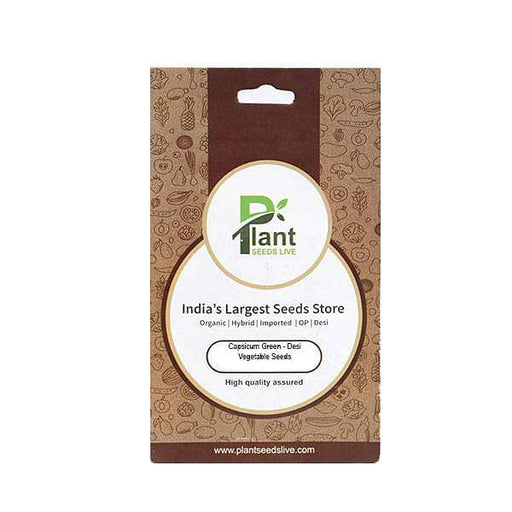
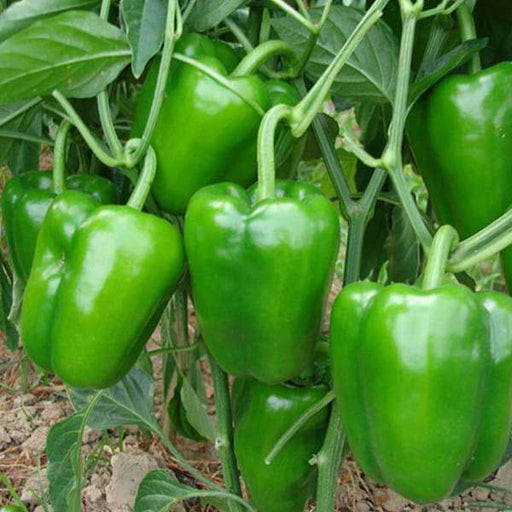 Save 25%
Save 25%
Capsicum Green - Desi Vegetable Seeds Capsicum Green, also known as bell pepper, is a vibrant and nutritious addition to your garden. Thes...
View full details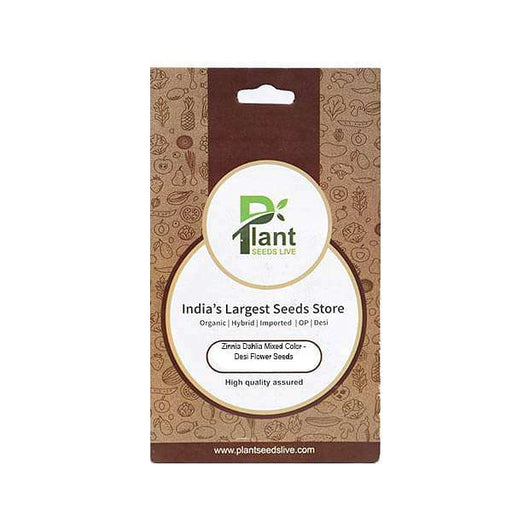
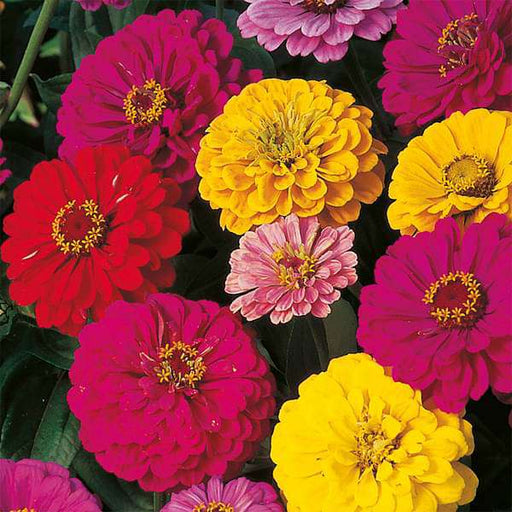 Sold out
Sold out
Zinnia Dahlia Mixed Color - Desi Flower Seeds Transform your garden into a vibrant tapestry of colors with our Zinnia Dahlia Mixed Color -...
View full details
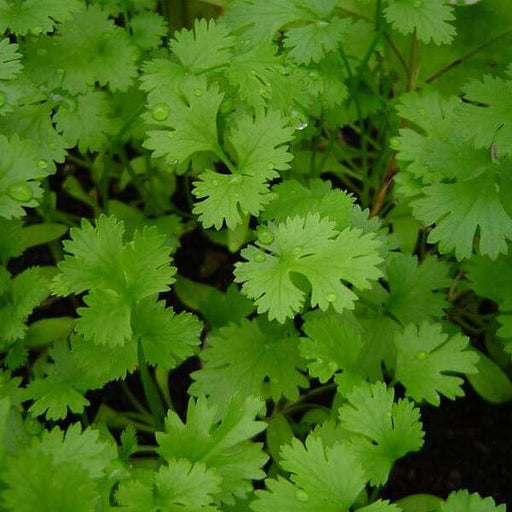 Save 25%
Save 25%
Coriander Panipat - Desi Vegetable Seeds Coriander Panipat is a premium variety of coriander seeds, cherished for its aromatic leaves and ...
View full details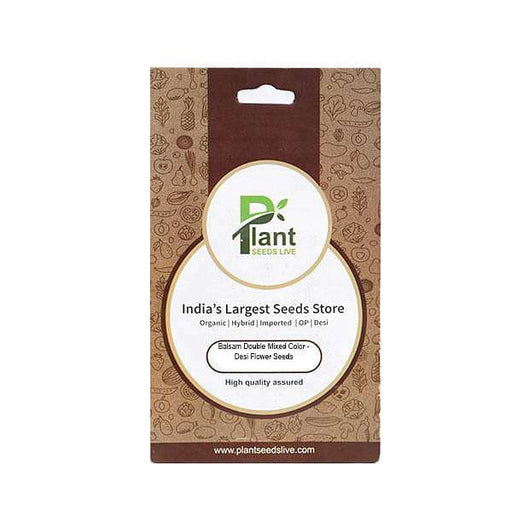
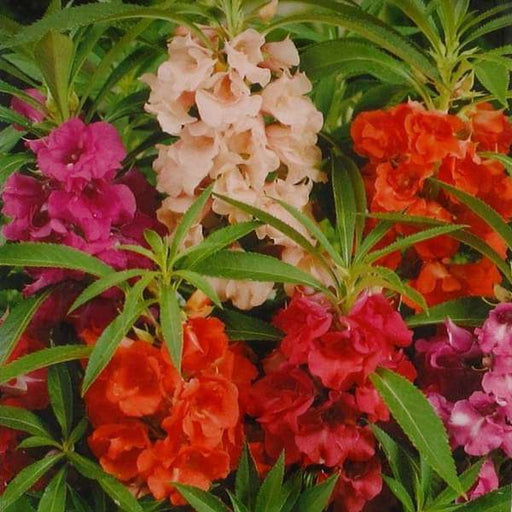 Save 25%
Save 25%
Balsam Double Mixed Color - Desi Flower Seeds Discover the vibrant beauty of Balsam Double Mixed Color - Desi Flower Seeds, a delightful a...
View full details
 Save 25%
Save 25%
Cherry Tomato, Cherry Tomato Honey - Vegetable Seeds Discover the delightful world of Cherry Tomato Honey seeds, perfect for home gardener...
View full details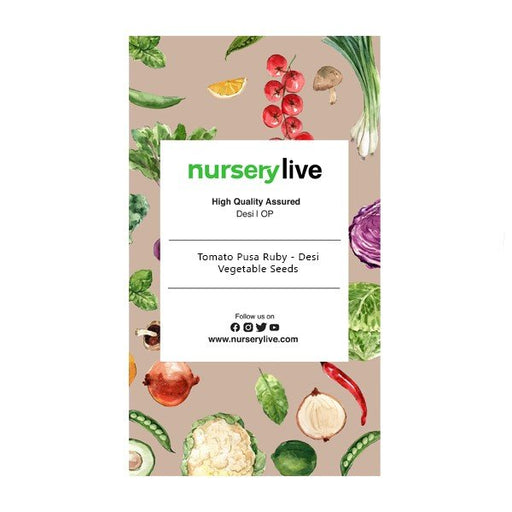
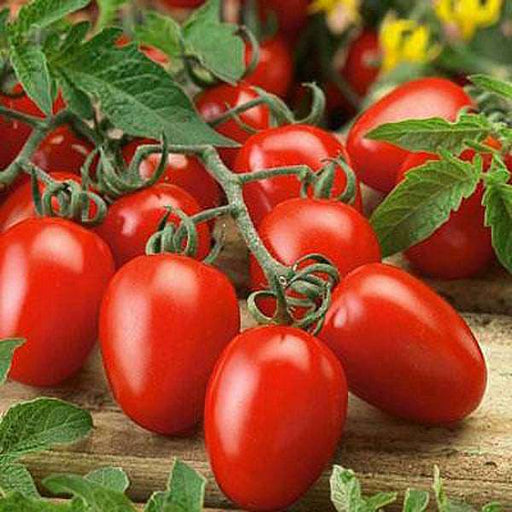 Save 25%
Save 25%
Tomato Pusa Ruby - Desi Vegetable Seeds The Tomato Pusa Ruby is a premium variety of tomato seeds, renowned for its vibrant red color, jui...
View full details
 Save 25%
Save 25%
Spinach All Green - Desi Vegetable Seeds Introducing the Spinach All Green - Desi Vegetable Seeds, a premium variety of spinach that thriv...
View full details
 Save 25%
Save 25%
Capsicum Green - Desi Vegetable Seeds Capsicum Green, also known as bell pepper, is a vibrant and nutritious addition to your garden. Thes...
View full details
 Save 25%
Save 25%
Coriander Panipat - Desi Vegetable Seeds Coriander Panipat is a premium variety of coriander seeds, cherished for its aromatic leaves and ...
View full details
 Save 25%
Save 25%
Cherry Tomato, Cherry Tomato Honey - Vegetable Seeds Discover the delightful world of Cherry Tomato Honey seeds, perfect for home gardener...
View full details
 Save 25%
Save 25%
Tomato Pusa Ruby - Desi Vegetable Seeds The Tomato Pusa Ruby is a premium variety of tomato seeds, renowned for its vibrant red color, jui...
View full details
 Save 25%
Save 25%
Spinach All Green - Desi Vegetable Seeds Introducing the Spinach All Green - Desi Vegetable Seeds, a premium variety of spinach that thriv...
View full details
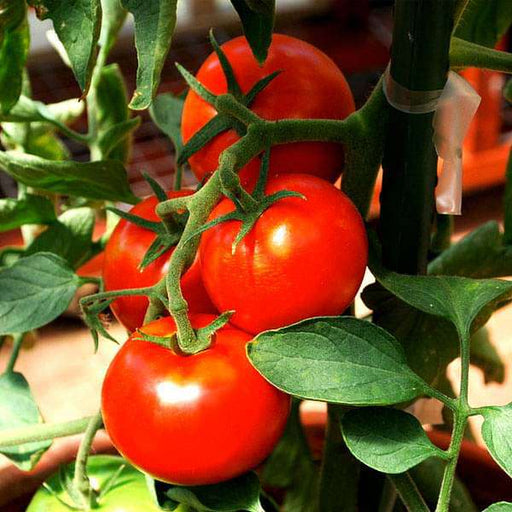 Save 25%
Save 25%
Tomato Ped - Desi Vegetable Seeds Introducing the Tomato Ped - Desi Vegetable Seeds, a premium selection of heirloom tomato seeds that pro...
View full details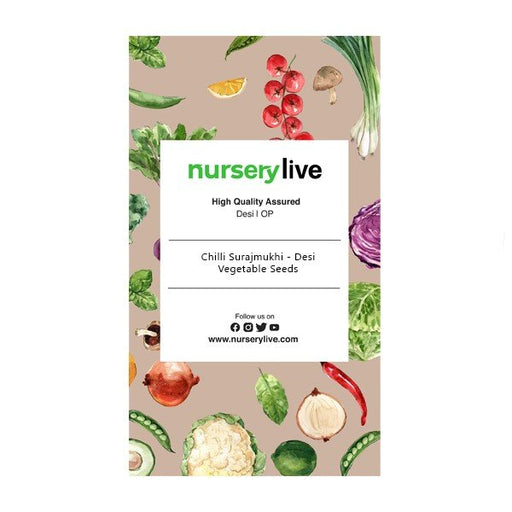
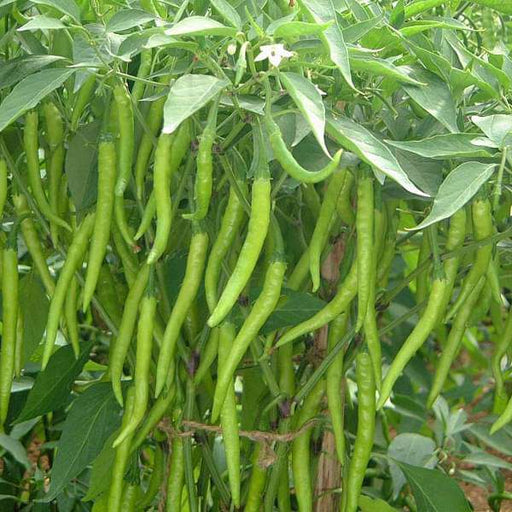 Save 25%
Save 25%
Chilli Surajmukhi - Desi Vegetable Seeds Introducing the Chilli Surajmukhi, a unique variety of desi vegetable seeds that brings a burst o...
View full details
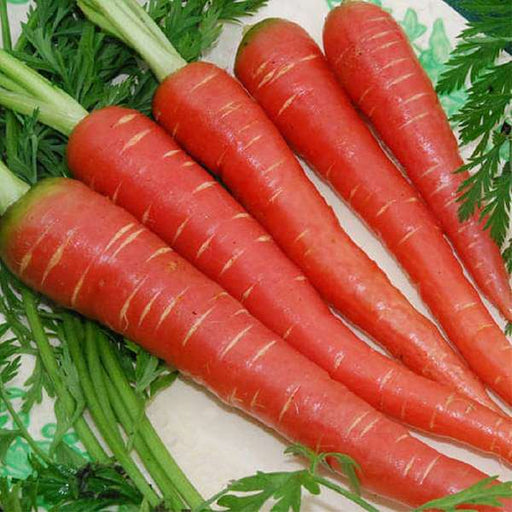 Save 25%
Save 25%
Carrot Red Long - Desi Vegetable Seeds Introducing the Carrot Red Long - Desi Vegetable Seeds, a premium variety known for its vibrant col...
View full details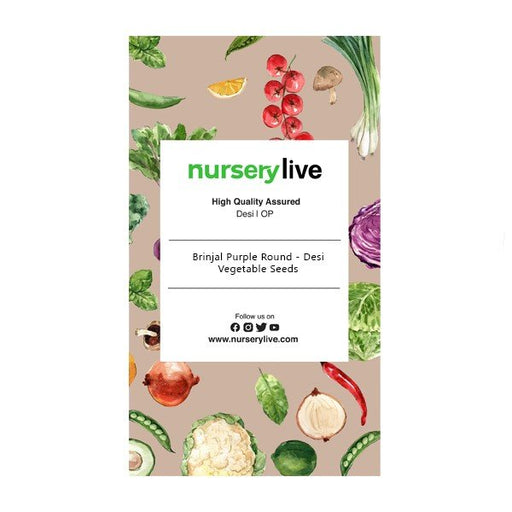
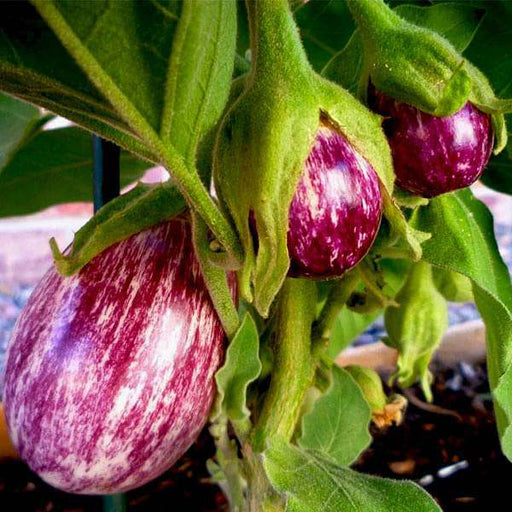 Save 25%
Save 25%
Brinjal Purple Round - Desi Vegetable Seeds Discover the rich flavors and vibrant colors of Brinjal Purple Round, a staple in Indian cuisi...
View full details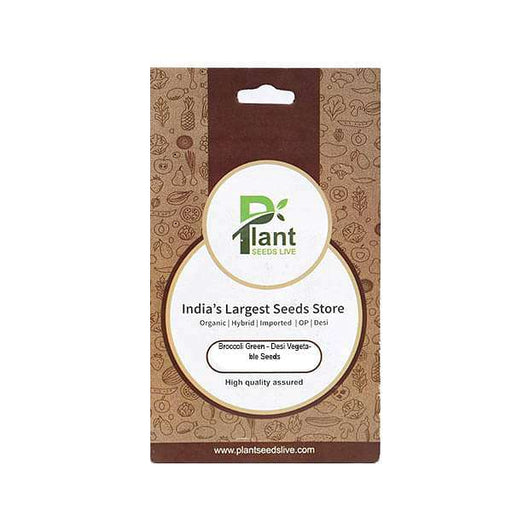
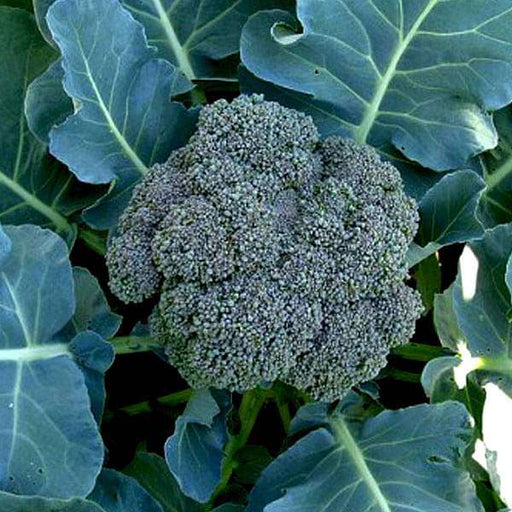 Save 25%
Save 25%
Broccoli Green - Desi Vegetable Seeds Discover the vibrant world of Broccoli Green with our premium Desi Vegetable Seeds. Known for its ri...
View full details
 Save 35%
Save 35%
Best 6 Plants for Perfect Indoor Garden Transform your living space into a lush oasis with our curated collection of the Best 6 Plants for a...
View full details
 Save up to 50%
Save up to 50%
Mini Succulent Garden Pack Transform your space with our Mini Succulent Garden Pack, featuring a delightful collection of 4 any variety beautiful s...
View full details
 Save 30%
Save 30%
5 Best Fragrant Plants Transform your garden or indoor space into a fragrant paradise with our curated selection of the 5 Best Fragrant Plants. Th...
View full details
 Save 24%
Save 24%
Set of 2 Bonsai Looking Grafted Adeniums Transform your indoor or outdoor space with our exquisite Set of 2 Bonsai Looking Grafted Adenium...
View full details Save 45%
Save 45%
Top 4 Die Hard Succulents Pack Transform your indoor or outdoor space with our Top 4 Die Hard Succulents Pack, featuring a curated selecti...
View full details
 Save 30%
Save 30%
5 Best Indoor Plants Pack Transform your living space into a lush oasis with our '5 Best Indoor Plants Pack.' This carefully curated collection fe...
View full details
 Save 25%
Save 25%
Set of 4 Evergreen Air Purifier Plant Pack Transform your indoor space into a lush, green oasis with our Set of 4 Evergreen Air Purifier Pla...
View full details| SrNo | Item Name |
|---|---|
| 1 | Kagji Nimboo, Lemon - 0.5 kg Seeds |
The Kagji Nimboo, also known as the Indian Lemon, is a prized citrus fruit renowned for its tangy flavor and numerous health benefits. These seeds are sourced from the finest varieties, ensuring high germination rates and robust plants. With a rich history in traditional medicine and culinary uses, Kagji Nimboo is a must-have for any garden enthusiast or health-conscious individual.
What makes Kagji Nimboo special is its unique flavor profile and versatility. Unlike other lemons, Kagji Nimboo has a thin skin and a high juice content, making it perfect for culinary applications. Its high vitamin C content boosts immunity and promotes skin health, while its essential oils have antimicrobial properties.
Special features of Kagji Nimboo include its adaptability to various climates and its ability to thrive in poor soil conditions. This hardy plant not only enhances your garden's aesthetic appeal but also contributes positively to the environment by improving air quality and supporting local biodiversity.
Growing Kagji Nimboo contributes positively to the environment by enhancing biodiversity and improving air quality. Lemon trees are known to absorb carbon dioxide and release oxygen, making them a valuable addition to any garden. Additionally, they attract beneficial insects, which can help in pollination and pest control.
If life gives you lemons, make sure they’re Kagji Nimboo! This zesty variety is not just a pretty face; it’s packed with vitamin C, antioxidants, and a splash of flavor that can turn any dish into a culinary masterpiece. From boosting your immune system to adding a tangy twist to your favorite drinks, Kagji Nimboo is the citrus superstar you didn’t know you needed.
Growing a Kagji Nimboo tree is like raising a child—requires love, attention, and the right amount of sunlight. These trees thrive in well-drained soil and need a good dose of water, but don’t drown them! Pruning is essential, so channel your inner gardener and snip away those pesky branches to encourage growth.
The Kagji Nimboo is the secret ingredient in your kitchen that can elevate any dish from drab to fab. Whether you’re whipping up a tangy salad dressing, a refreshing lemonade, or a zesty marinade, this lemon variety is your go-to. It’s like the fairy godmother of flavors—turning ordinary meals into extraordinary feasts.
Not all lemons are created equal, and the Kagji Nimboo is the crème de la crème of citrus fruits. With its thin skin and juicy pulp, it stands out among the crowd. While other lemons may be sour, Kagji Nimboo brings a delightful balance of tartness and sweetness, making it the belle of the lemon ball.
Who says you can’t have a lemon tree in your living room? With a little love and the right pot, your Kagji Nimboo can thrive indoors. Just make sure it gets plenty of sunlight and a cozy spot by the window. Soon, you’ll be plucking fresh lemons while sipping your morning coffee—talk about a citrusy upgrade!
Every hero has its villains, and for the Kagji Nimboo, it’s those pesky pests! Aphids, spider mites, and scale insects can wreak havoc on your beloved tree. But fear not! A little neem oil or insecticidal soap can send those intruders packing. Keep your tree healthy, and it will reward you with a bounty of lemons.
The moment you’ve been waiting for—harvesting your Kagji Nimboo lemons! Wait until they turn a vibrant yellow and give them a gentle twist. If they come off easily, congratulations! You’ve successfully grown your own citrus treasure. Just remember, the more you harvest, the more your tree will produce. It’s a win-win!
To keep your Kagji Nimboo tree thriving, it’s essential to feed it right. A balanced fertilizer rich in nitrogen, phosphorus, and potassium will do wonders. Think of it as a gourmet meal for your tree—because who doesn’t love a good feast? Just don’t overdo it; too much fertilizer can lead to a lemon tree with a bad case of indigestion.
When life hands you Kagji Nimboo lemons, make lemonade! This refreshing drink is a summer staple, and with the right recipe, you can turn your lemons into liquid gold. Mix fresh lemon juice, water, and sugar, and voilà! You’ve got a thirst-quencher that will have everyone begging for your secret recipe.
Patience is a virtue, especially when waiting for your Kagji Nimboo tree to bear fruit. Typically, these trees take about 2-3 years to start producing lemons. But don’t fret! With proper care and a little sunshine, your tree will reward you with a bountiful harvest. Good things come to those who wait!
Just like us, Kagji Nimboo trees can fall ill. Fungal infections and root rot are common culprits that can hinder your tree’s growth. Keep an eye out for yellowing leaves or wilting branches. A little preventive care, like proper watering and good air circulation, can keep your tree healthy and happy.
Pruning your Kagji Nimboo tree is like giving it a stylish haircut. It helps promote healthy growth and keeps the tree looking fabulous. Snip away dead or overcrowded branches to allow sunlight to reach the inner leaves. Your tree will thank you by producing more lemons, and you’ll feel like a gardening guru!
Kagji Nimboo, also known as the king of lemons, is a citrus delight that packs a punch! These seeds are your ticket to growing juicy, tangy lemons right in your backyard. With 0.5 kg of seeds, you’ll have enough to start a lemon empire or at least a zesty lemonade stand!
Planting Kagji Nimboo seeds is as easy as pie—lemon pie, that is! Start by soaking the seeds overnight, then plant them in well-drained soil. Give them a cozy spot in the sun, water them regularly, and watch as they sprout into lemony goodness. Just don’t forget to talk to them; they love a good chat!
Kagji Nimboo thrives in warm, sunny climates—think tropical paradise! They prefer temperatures between 20°C to 30°C. If you live in a cooler area, consider giving them a cozy indoor home during winter. Just remember, they’re not fans of frost; they’d rather sip a piña colada on the beach!
Patience is a virtue, especially with Kagji Nimboo seeds! Typically, they take about 2 to 4 weeks to germinate. So, grab a cup of tea, sit back, and let nature do its thing. Before you know it, you’ll have tiny green sprouts ready to take on the world—or at least your kitchen!
Kagji Nimboo loves well-drained, sandy loam soil that’s rich in organic matter. Think of it as their five-star hotel! A pH level between 5.5 and 6.5 is ideal. If your soil is too heavy, mix in some sand or compost to keep it light and airy—just like a good soufflé!
Watering your Kagji Nimboo plants is like giving them a refreshing spa day! Keep the soil moist but not soggy. Generally, watering once a week should do the trick, but adjust based on the weather. If they start drooping, it’s time for a drink—just like you after a long day!
Absolutely! Kagji Nimboo plants are like teenagers—they need a little extra love to thrive. Use a balanced fertilizer every 4-6 weeks during the growing season. Organic options like compost or well-rotted manure work wonders. Just don’t overdo it; too much fertilizer can lead to a lemony disaster!
Get ready for a citrus celebration! Typically, you can start harvesting Kagji Nimboo lemons about 6 to 9 months after planting. The lemons will be ready when they turn a vibrant yellow and feel slightly soft to the touch. Just remember, patience is key—good things come to those who wait!
Absolutely! Kagji Nimboo loves a good pot party. Choose a container that’s at least 12 inches deep with drainage holes. Use quality potting mix, and make sure to place it in a sunny spot. Just be prepared to give it a little extra TLC, as potted plants can dry out faster!
Oh, you bet they are! Kagji Nimboo lemons are culinary rock stars. Their tangy flavor elevates everything from marinades to desserts. Squeeze them over fish, whip up a zesty salad dressing, or make a refreshing lemonade. They’re the secret ingredient your kitchen has been missing—time to unleash your inner chef!
Pests can be pesky, but fear not! Keep your Kagji Nimboo plants safe by regularly inspecting them for unwanted guests. Use natural remedies like neem oil or insecticidal soap to keep pests at bay. And remember, a healthy plant is a happy plant—so give them the love they deserve!